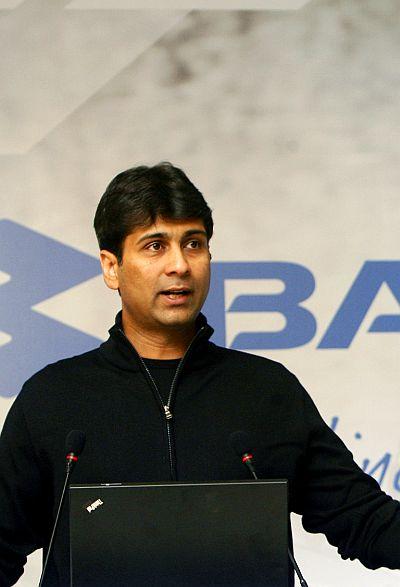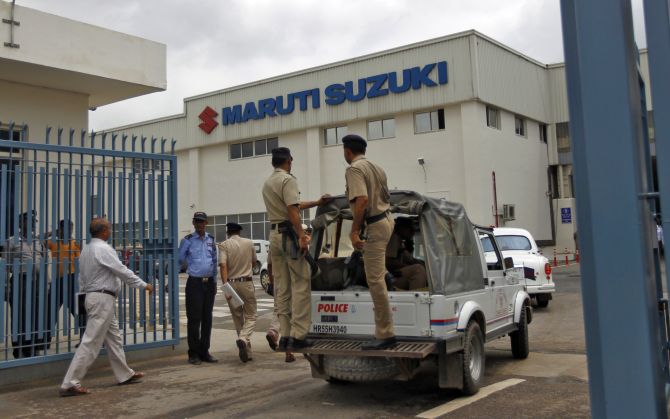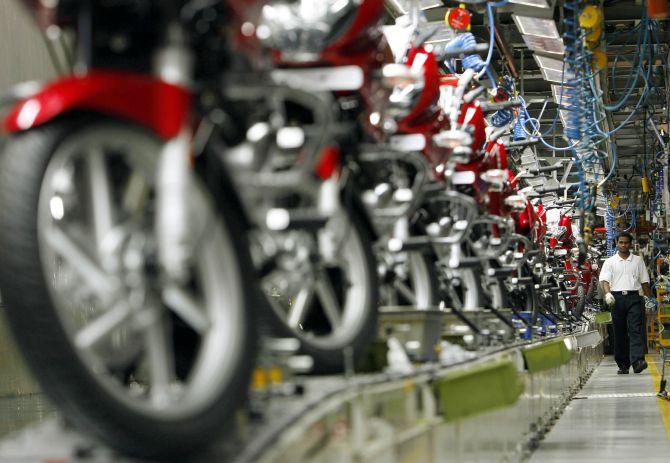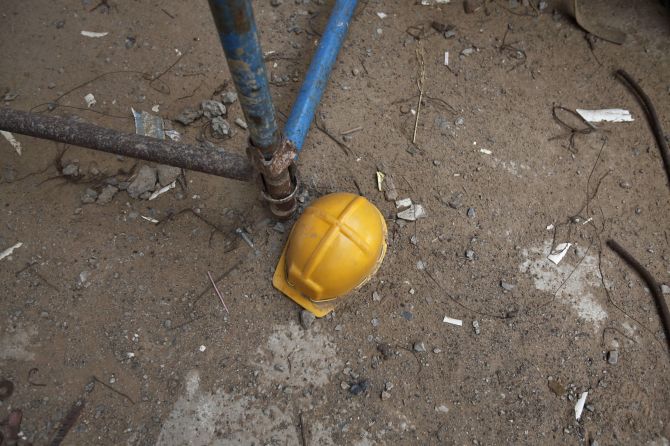 | « Back to article | Print this article |
How Bajaj Auto ended the strike at Chakan
The company threatened the workers that it will shift production to other factories. The slowdown in the auto industry would make it difficult for the striking workforce to find jobs elsewhere.
The way Bajaj Auto has dealt with the workers' strike at its Chakan plant reveals the extent of the slowdown in Indian manufacturing, which has reduced workers' bargaining power.
The company's managing director, Rajiv Bajaj, did not yield to the striking workers' demand for shares in the company and a new wage agreement to replace the existing one, which is valid till 2019.
Workers won't be paid for the 50 or so days they were on strike; suspended employees will not be taken back.
The automobile industry is in the midst of a severe slowdown, and the Chakan belt has seen huge layoffs; so the threat of bleeding the company while others made money didn't really work.
Click NEXT to read more…
How Bajaj Auto ended the strike at Chakan
That apart, Mr Bajaj was able to break the logjam because he said he would shift production from Chakan to Aurangabad and Pantnagar.
Again, the slack in the market allowed him to make this threat. The shift, he told the workers in no uncertain terms, would call for fresh recruitment at these factories and, as a result, they would have to look for other jobs, sit at home or take voluntary retirement.
Companies that have just one factory often have to buckle under pressure. Maruti Suzuki had two factories: one each at Gurgaon and Manesar.
The Gurgaon factory was working at full capacity; so when the workers at Manesar struck work and trouble spread at its Gurgaon plant, the company faced a major problem.
Click NEXT to read more…
How Bajaj Auto ended the strike at Chakan
That is why perhaps it has chosen to locate its third plant in Gujarat. Honda, similarly, is setting up its second and third units in Rajasthan and Karnataka.
Another reason unique to Bajaj Auto that aided its ability to end the strike is that the company has a policy of not using contract workers in its core operations.
Disputes over contract workers were behind the ugly strike at Maruti Suzuki's Manesar factory.
While the average salary of a Bajaj Auto worker is Rs 25,000 per month (the average annual increment, under the wage agreement, is 12 per cent), a contract worker in the Chakan area can be hired for as little as Rs 7,000.
The automobile industry had, thus, begun to largely casualise its core operations. There is no social security for such workers and frustration among them runs high - the perfect recipe for industrial unrest.
Click NEXT to read more…
How Bajaj Auto ended the strike at Chakan
In the Chakan belt alone, this newspaper has reported, some 40,000 contract workers in the automobile industry have lost their jobs in recent months.
Bajaj Auto also has an "earn-while-you-learn" programme for trainees. They are paid the same as permanent workers, and many of them are later absorbed.
As trainees, they are not members of any labour union. When the 900 or so workers at Chakan went on strike, the 500 trainees ensured production did not stop totally - its fall from around 3,600 motorcycles a day was arrested at 1,200 motorcycles a day.
Industry would have many lessons to draw from what happened at Bajaj Auto.




